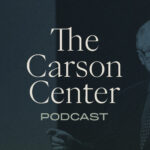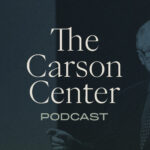The following article is an excerpt from Praying with Paul: A Call to Spiritual Reformation (2nd ed.) by D. A. Carson (Baker). Used by permission of the publisher. In addition, The Gospel Coalition, in partnership with LifeWay, published a new group study curriculum for Praying with Paul, co-written by Carson and Brian Tabb.
I would like to address rather directly the clergy. Do you desire, with all your heart, what is best for the congregation you serve? Then you must ask yourself how much time you devote to praying the sort of prayer that Paul prayed in Philippians 1:9-11. Part of the problem we ministers in the West face when we butt up against this challenge is that, while we know we have been called to the ministry of the Word and prayer, several notable pressures impose themselves, pressures so persistent that they end up shaping our values and therefore our schedules.
The pastor’s job has been diversified. We no longer give ourselves to the ministry of the Word and prayer, because we have become professional counselors, fundraisers, administrators, committee members, referees, politicians, and media personalities. Many pastors are confused about their own identity and may suffer from low estimates of the value of their work.
Up until 30 years or so ago, clergy were generally respected in the Western world. Three decades of rising secularism, of the media’s persistent presentation of clergy as wimps or charlatans or both, of public perceptions that we are obsolete (like dinosaurs) and arrogant, and we may feel a little insecure. Many of us work with professionals and even teach professionals, but we quickly discover that we are not treated like professionals ourselves. It can be argued that such pressures should not bother those who follow in the way of the cross. In practice, however, many clergy overcompensate, acting far too much like professionals and far too little like those given to the ministry of the Word and prayer.
Not a few clergy feel discouraged and unfruitful. Many pastors work for months and years without seeing a single convert. Some have bright ideas but feel they cannot pull the weight of ecclesiastical tradition with them; others value the traditions from which they spring and feel threatened by the endless succession of faddish innovation. The years trickle past, and dispirited resignation sets in.
Some clergy bury themselves in endless activism. Through no one’s fault but their own, they give themselves to endless work, always keeping busy but never carving out time to study, think, meditate, and pray. These and similar pressures corrode our values, deflect our aims, and finally corrupt our schedules. If we regain biblical priorities, all these pressures will appear in a different light.
Has the job been diversified? Once our priorities are straight, we will learn to relegate tasks to their appropriate rank according to the values of Scripture. Delegate some things; cancel others. You do not have to have a bulletin; you have to pray. You do not have to chair every committee or attend every meeting; you have to pray.
Are we confused about our roles? If we remember what we have been called to and devote ourselves to praying for what is best, we may care a little less about the opinions of a secular world and devote ourselves more scrupulously to serving the only Master whose opinion matters.
Do we feel unfruitful and discouraged? Not only must we remind ourselves that our Master is more interested in faithfulness than in statistics; we shall also be bold enough to ask if some of our unfruitfulness is the result of being diverted from the ministry of the Word and prayer. How much have we prayed for what is best—for a spiritual harvest, for conversions, for demonstrations of the fruit of the Spirit? Could it be that we have experienced little because we have asked for little? Is our unfruitfulness proportionate to our prayerlessness? Paul’s prayer knifes through so many of our excuses.
Finally, do we bury ourselves in activism? When, then, do we devote ourselves to that to which we have been called, to the ministry of the Word and prayer? When do we pray for what is best? Of course, Paul’s determination to pray along these lines for the believers in Philippi must not be restricted in its application to clergy. Each believer must ask: To what extent do I pray for excellent things, things judged excellent in God’s eyes, both for myself and for those around me? Do I pray that my love may abound more and more in knowledge and depth of insight, so that I can distinguish between what is passable and what is excellent, between what is acceptable and what is best, testing out and approving what is best in my own life? Do I pray this for my church? Or, quite frankly, do I prefer sullen mediocrity?
Paul prays for what is excellent, and it is quite certain that this sort of excellence cannot be attained without prayer.
Involved in Women’s Ministry? Add This to Your Discipleship Tool Kit.
 We need one another. Yet we don’t always know how to develop deep relationships to help us grow in the Christian life. Younger believers benefit from the guidance and wisdom of more mature saints as their faith deepens. But too often, potential mentors lack clarity and training on how to engage in discipling those they can influence.
We need one another. Yet we don’t always know how to develop deep relationships to help us grow in the Christian life. Younger believers benefit from the guidance and wisdom of more mature saints as their faith deepens. But too often, potential mentors lack clarity and training on how to engage in discipling those they can influence.
Whether you’re longing to find a spiritual mentor or hoping to serve as a guide for someone else, we have a FREE resource to encourage and equip you. In Growing Together: Taking Mentoring Beyond Small Talk and Prayer Requests, Melissa Kruger, TGC’s vice president of discipleship programming, offers encouraging lessons to guide conversations that promote spiritual growth in both the mentee and mentor.
































